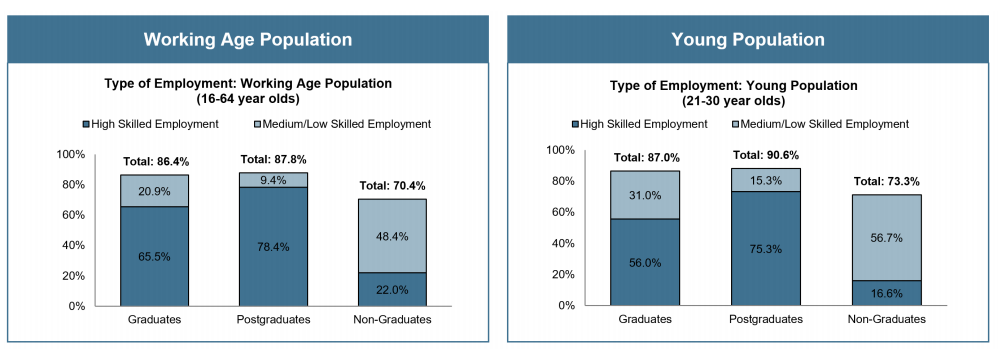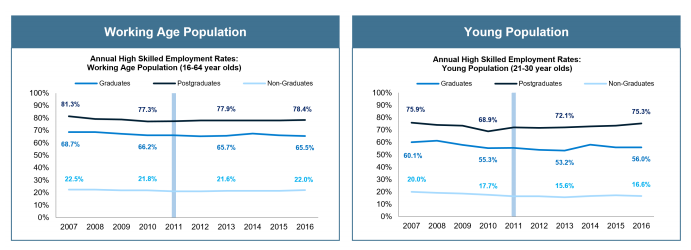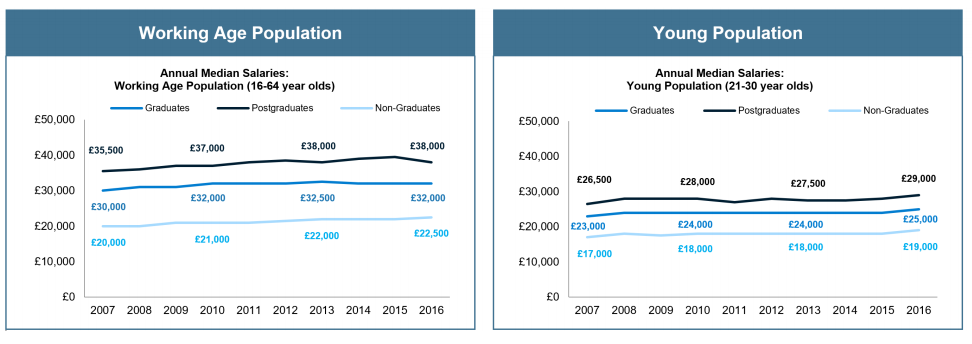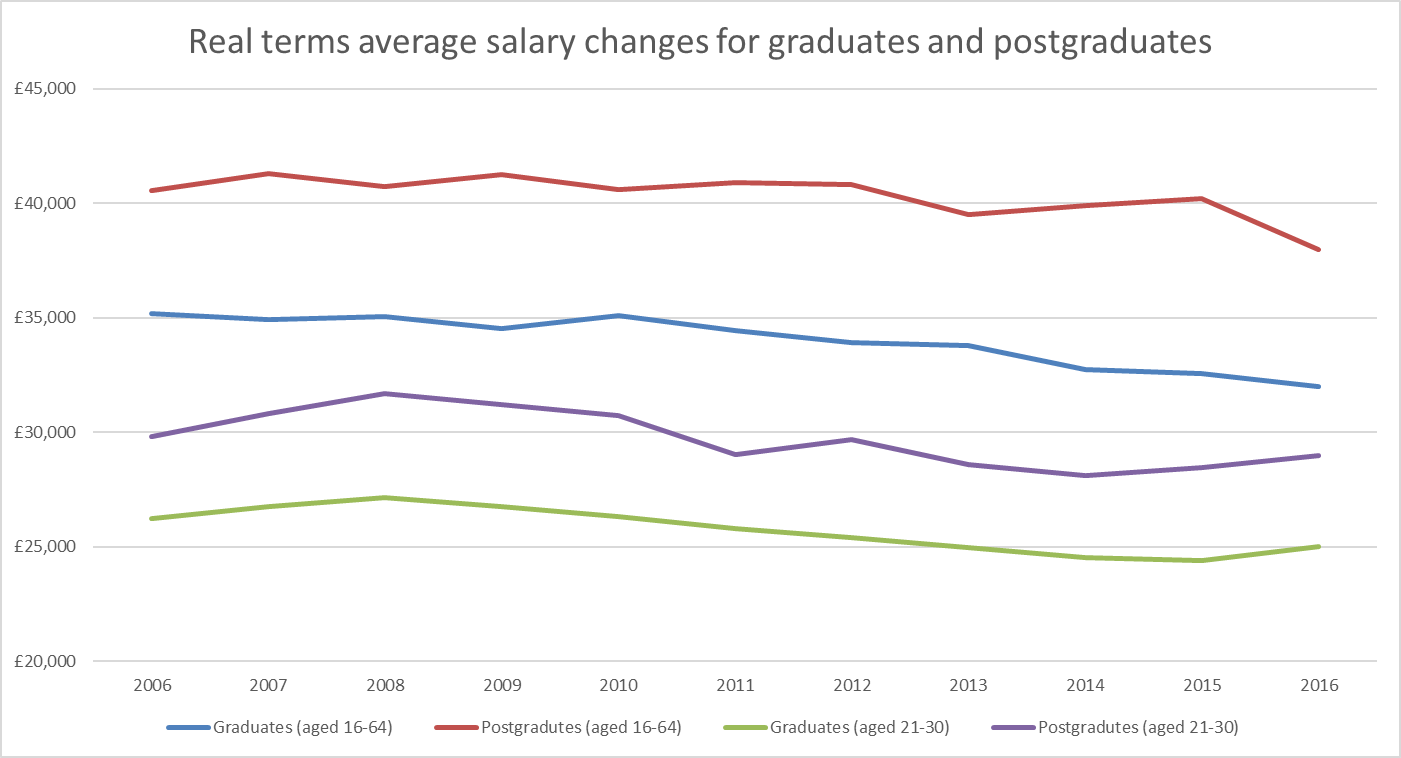The proportion of graduates who are employed in high-skilled jobs has continued to decline, the latest data for England have shown.
According to the annual Graduate Labour Market Statistics release for 2016, the percentage of working-age bachelor’s graduates in high-skilled employment fell by 0.7 percentage points to 65.5 per cent in 2016.
At the same time, the proportion of working-age people with a postgraduate qualification employed in such jobs went up 0.3 percentage points to 78.4 per cent.
The rise for postgraduates in highly skilled work was even higher (1.8 percentage points to 75.3 per cent) when considering only young people (aged 21 to 30), although there was also a rise in the proportion of young bachelor's graduates employed in high-skilled work (0.2 percentage points to 56 per cent).

It continues a general trend in the last 10 years for a relative decline in the proportion of people educated to bachelor’s level or below to be employed in high-skill jobs, which has been fuelling a debate about whether the worth of degrees is being diluted by higher rates of participation in higher education.

Median salaries for graduates in England (which are rounded to the nearest £500) have also remained fairly static over the past decade (in cash terms), both for the working-age population as a whole and young people, while those for postgraduates have been on a more upward curve. However, for both postgraduates and graduates aged 21 to 30, the median salary went up in the year to 2016 in cash terms.

When the salary figures were adjusted by Times Higher Education for inflation, there was still a slight rise in the median salary for young graduates and postgraduates in 2016, but over time there is a clear trend of salaries for those educated to bachelor’s level being eroded (although there was also a sudden drop in the median for working-age postgraduates in 2016).

Note: 2016 prices. Inflation adjustment uses UK government GDP deflator. Adjustment made on median salary figures that were originally rounded to nearest £500.
Elsewhere in the graduate labour market release, there are striking figures on earnings according to gender, ethnicity and the degree class achieved at bachelor’s level.
Male graduates aged 21 to 30 earned on average £2,500 more (the median is £26,000 for men and £23,500 for women) in 2016. White graduates in the same age category had a median salary of £25,000, which was £3,500 higher than the median for black graduates, although Asian graduates had the highest median earnings at £27,000.
On degree class, working-age graduates with 2:1 or 2:2 actually earned £500 more on average than graduates with a first, but for young graduates that achieved a first there was an earnings gap at the median of up to £3,000 the other way compared with those with a second-class degree.
Comparing subject areas meanwhile shows that a higher proportion of graduates in science, technology, engineering and maths (STEM) is employed in high-skill jobs (72.5 per cent) than those who studied either law, economics and management (LEM - 64.8 per cent) or other social sciences, arts and humanities (OSSAH – 59.6 per cent).
However, the picture is more mixed when the overall employment rate and median salaries are considered. Working-age graduates of both STEM and LEM subjects had similar overall employment rates (88.5 per cent and 88.7 per cent respectively) while for OSSAH graduates the figure was 85.4 per cent. Graduates of LEM subjects earned the highest median salary for both graduates across the working-age population (£35,000) and those aged 21 to 30 (£27,000).
Find out more about THE DataPoints
THE DataPoints is designed with the forward-looking and growth-minded institution in view
Register to continue
Why register?
- Registration is free and only takes a moment
- Once registered, you can read 3 articles a month
- Sign up for our newsletter
Subscribe
Or subscribe for unlimited access to:
- Unlimited access to news, views, insights & reviews
- Digital editions
- Digital access to THE’s university and college rankings analysis
Already registered or a current subscriber? Login






